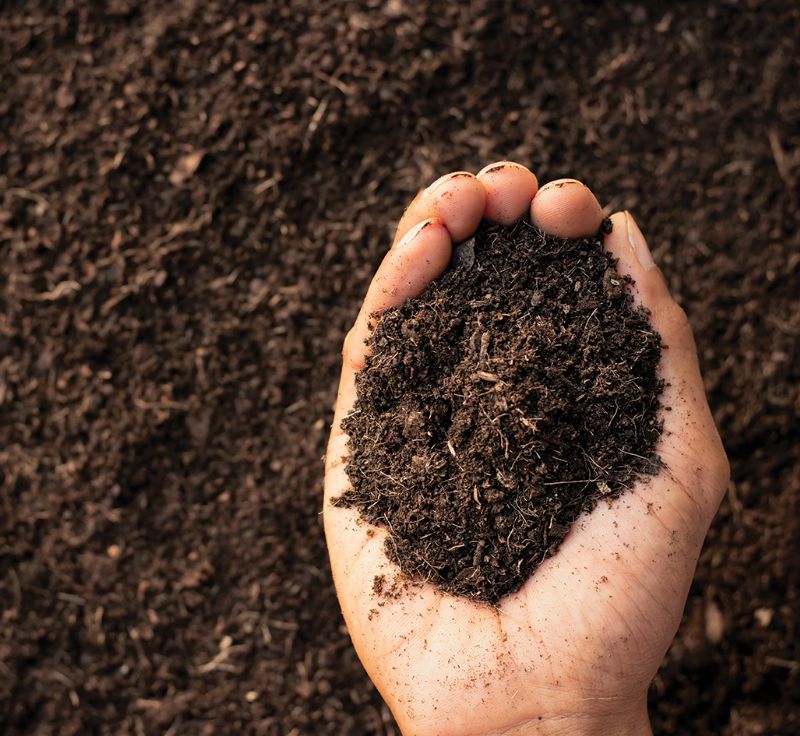- Home
- News, Articles & Reviews
We are hiring! Please click here to join our growing magazine delivery team in Gloucestershire!
Areas
Environment
Archive

Soil appreciation
All Areas > Environment > Save the Planet
Author: Hannah Basnett, Posted: Monday, 24th April 2023, 09:00
As our sunlight hours get increasingly longer and we venture outside to admire the myriad of life springing up from the ground, we often fail to appreciate all the below-the-scenes action taking place.
Soil sustains our entire life system; everything comes from the soil and returns to the soil. One meagre teaspoon can contain more organisms than there are humans living on Earth. Ancient eastern Buddhists teach that there is no one as patient, resilient, forgiving and generous as the soil.
Yet, soil degradation and the loss of its capacity to support animals and plants are becoming increasingly global issues. In the last four decades, almost one third of the world’s farmable land has ceased to exist. This leads to increased poverty, carbon emissions (soil is also the second largest natural carbon sink after the ocean), and foreshadowing mass migration.
What does healthy soil look like?
In the UK alone there are 700 different varieties of soil. Healthy soil should have a vast range of biodiversity including thousands of bacteria species, different fungi, up to 100 species of insects, roughly 25 arachnids, and a range of very important earthworms. Worms turn the organic decaying matter into humus, also known as ‘black gold’, the source of all that is best in plant growth.
Unfortunately, human activities such as deforestation, unsustainable agriculture, and overuse of pesticides and fertilisers have led to significant soil degradation worldwide. Our layer of black gold is rapidly depleting.
How can we improve soil health?
One way to improve soil health is through regenerative agriculture. This is a set of farming practices that mimic natural ecosystems to restore soil health, promote biodiversity and reduce carbon emissions. Regenerative agriculture focuses on building healthy soil by increasing organic matter, improving soil structure and enhancing soil biodiversity.
Through these practices, regenerative agriculture helps to sequester carbon in the soil, reduce greenhouse gas emissions, and promote sustainable food production.
Another way to improve soil health is through composting. Composting not only diverts waste from landfills, but it also provides a valuable source of nutrients for plants, improves soil structure, and reduces the need for synthetic fertilisers.
Synthetic pesticides and fertilisers can have harmful effects on soil microbes and other organisms, leading to reduced biodiversity and soil degradation. Switching to organic fertilisers, such as seaweed, helps to promote a healthy soil ecosystem that supports plant growth, maintains biodiversity and sustains our environment.
By restoring degraded lands, we can improve soil health, reduce carbon emissions and restore biodiversity. It’s up to each of us to take action to promote soil health and wealth in our communities. Together, we can stop treating soil like dirt, and create a healthier future for ourselves and future generations.Other Images
Copyright © 2026 The Local Answer Limited.
Unauthorized use and/or duplication of this material without express and written permission from this site's author and/or owner is strictly prohibited. Excerpts and links may be used, provided that full and clear credit is given to The Local Answer Limited and thelocalanswer.co.uk with appropriate and specific direction to the original content.More articles you may be interested in...


© 2026 The Local Answer Limited - Registered in England and Wales - Company No. 06929408
Unit H, Churchill Industrial Estate, Churchill Road, Leckhampton, Cheltenham, GL53 7EG - VAT Registration No. 975613000You are leaving the TLA website...
You are now leaving the TLA website and are going to a website that is not operated by us. The Local Answer are not responsible for the content or availability of linked sites, and cannot accept liability if the linked site has been compromised and contains unsuitable images or other content. If you wish to proceed, please click the "Continue" button below:




